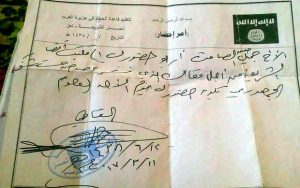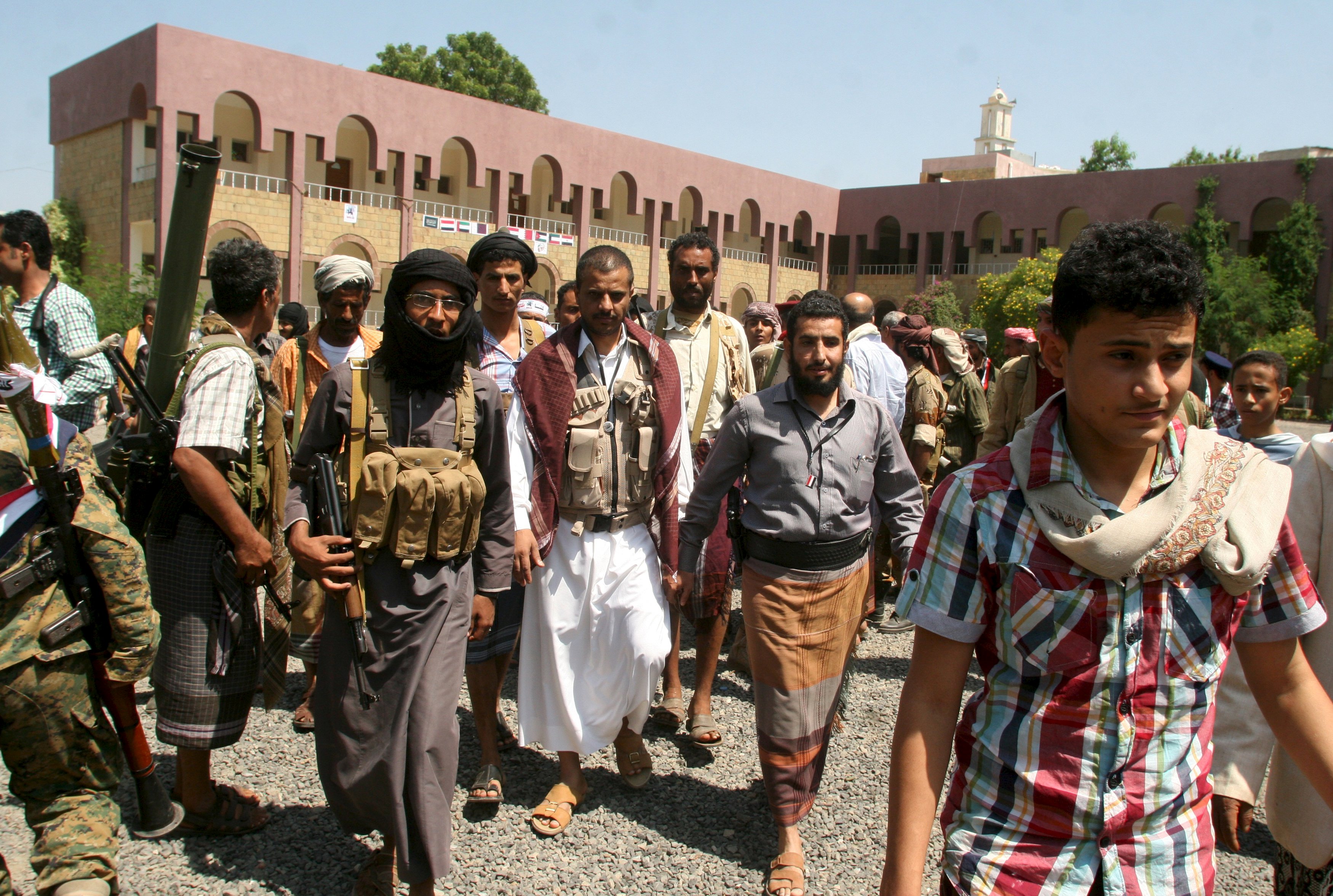‘We have to obey them’: Al-Qaeda increases its power in Yemen’s Taiz city
YemenExtra
The presence of al-Qaeda fighters in Taiz is not new. For months now they have fought, shoulder to shoulder, with pro-government forces against the Houthi.
Residents are accustomed to seeing their men move around the streets in their own military vehicles, or their slogans on walls in the Old City, al-Jahmalia and other eastern neighbourhoods under al-Qaeda control.
The group is known for its ruthlessness – but in general it has let local journalists in Yemen work unhindered.
But that changed one Saturday in March, when Jameel al-Samet was arraigned, receiving documentation which demanded that he report to the al-Qaeda office. The group wanted to investigate his report into alleged corruption at the Republican Hospital, which it controls.
It was an order Al-Samet could not refuse.
“I spent 30 hours in a prison run by Ansar al-Sharia [part of al-Qaeda in Yemen] as a guest,” Samet told Middle East Eye. “They detained me in one of their prisons in Taiz on Sunday morning and released me on Monday afternoon.”
Samet did not explain why he was detained: he doesn’t want it to happen again. But many believe it is a growing sign that al-Qaeda has begun to act like a government in Taiz.

Aside from the hospital, the group also runs public institutions, such as police stations. It even has its own offices where it deals with complaints from residents (although many locals decide not to report them).
“Al-Qaeda works secretly everywhere in the country,” a journalist in Taiz city told Middle East Eye on condition of anonymity. “But in Taiz, al-Qaeda members consider themselves to be the main rulers of the city and we have to obey them.”
Journalists jailed in Yemen
The detention of journalists in Yemen was not that unusual, even before the war. But the key difference in the Samet case is that he was arraigned, meaning that al-Qaeda assumed the authority to investigate his actions.
Many journalists in Taiz now do not include their bylines on stories which are critical of al-Qaeda or the institutions under its control. They fear punishment without trial.
“No one can go against al-Qaeda,” said the journalist. “I am sure that journalists will flee Taiz, just as they previously fled Sanaa in 2015.”
The power politics in Taiz, the cultural capital of Yemen are complex.
There are 10 groups fighting under the banner of the Popular Resistance, including the Salafis, Muhamashin and al-Qaeda. They have their disputes over politics and religion – for example fighters in the Sa’aleek Brigade do not pray the five times every day – but all are united against the Houthis.
A leader of the pro-government resistance in Taiz city told MEE on condition of anonymity that they are aware of the dangers of al-Qaeda in Taiz city. However, they have resisted conflict as they do not want to open up a second front when fighting the Houthis is their priority.
“Taiz is not a stronghold of al-Qaeda and we did not hear any mention of al-Qaeda in Taiz before the war,” the source said. “But there are some members of al-Qaeda who have come to Taiz from the southern provinces during the last two years. Now they have spread to the east of the city.”
The source stressed: “If they do not leave the city then we will fight them and will force them to leave. This is what happened in Aden and some other southern provinces.”
Absence of government
But Fadhl al-Rabie, political analyst and the head of Aden-based Madar Strategic Studies Centre, told MEE: “The absence of the government gives the opportunity for the terrorist groups to replace it and this is the situation in Taiz province.
“Something similar has already happened in Aden in 2015, when al-Qaeda took over al-Mansoura and other areas there.”
Al-Qaeda and Islamic State fighters took advantage of the war between the Houthis and the pro-government forces in Aden in 2015 to take some areas in the city. Pro-government forces helped by the coalition – most notably the UAE – eventually took the city port back from them.
Rabie said that the Yemeni army at some point – if not now – has to gradually limit the influence of al-Qaeda in Taiz city to avoid any future fighting.
He confirmed that al-Qaeda wants to rule the country and exploit any chaos for its own interest – and for those reason the government must be cautious.
“The arraignment of Samet is a clear indication that al-Qaeda has become the ruler of some parts of the city,” he said. “Steps must be taken against them since they have weapons and they can take over Taiz.”
The journalist who spoke to MEE on condition of anonymity confirmed that he does not want to see either al-Qaeda fighters or members of the Popular Resistance rule Taiz province because they are not capable: instead he wants to see them on the battlefield against the Houthis while the government of President Hadi takes control.
“The future of Taiz will be worse than the present, as there are many groups threatening Taiz and there is no side to help us,” he said. “I am sure the political sides and the coalition countries will not support Taiz because there is no wealth in Taiz.
“May Allah’s will help us, as He is the only one that we can trust.”
Middle East Eye

